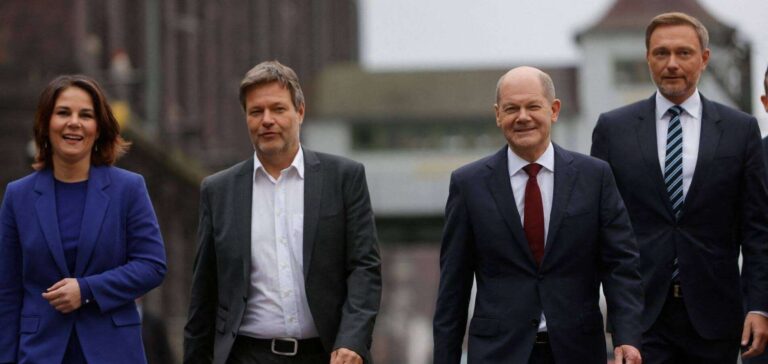In Germany, the new government led by Olaf Scholz has, among other things, brought forward the date for abandoning coal from 2038 to 2030.
Germany rolls out more ambitious climate targets
The new German coalition comprising the SPD, the Greens and the liberal FDP has agreed a treaty.
This sets out the policy to be followed, particularly in terms of energy transition.
In addition to the creation of a “super-ministry” combining the Economy and Climate, a number of objectives have been revised upwards.
First and foremost, coal will be phased out by 2030.
That’s eight years earlier than previously recommended.
To compensate, the treaty also calls for renewable energies to account for 80% of electricity demand by 2030.
That’s more than the 65% previously forecast.
Solar energy development targets have been doubled.
By 2030, Germany will have deployed 200 GW of solar power on its territory.
Offshore wind power is set to increase by 50% compared with initial targets.
It will thus reach 30 GW.
Finally, the target for electrolysis capacity for hydrogen production will also double, reaching 10 GW by 2030.
Nuclear phase-out in 2022, recourse to gas
The future role of gas was one of the tipping points of the treaty.
By phasing out nuclear power in 2022 and coal in 2030, Germany will have to compensate for the loss in energy supply.
But gas seems to be the right short- and medium-term solution.
Renewable energies do not currently have the capacity to meet energy demand at reasonable costs and without compromising security of supply.
Earlier reports indicated that the treaty set a target date of 2040 for phasing out gas.
This date has now been pushed back to 2045 by the Climate Act.
Furthermore, in the short term, gas and electricity prices are set to fall, with the average for 2022-2026 less than half current levels.
Putting a price on carbon
With regard to carbon, the government guarantees that the price per tonne of CO2 will never fall below €60.
Even if the European mechanism results in a lower minimum price.
For new gas-fired power plants, hydrogen readiness will be an essential prerequisite for obtaining subsidies for combined heat and power, or for ensuring a viable long-term business model.
The government expects new gas-fired capacity to switch to hydrogen from the mid-2030s.
Germany is thus stepping up its ecological objectives, with the aim of phasing out coal by 2030.
The new coalition is also looking to the future, with the more pronounced development of hydrogen.





















